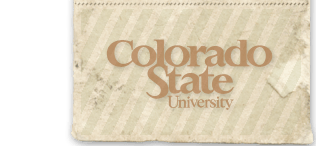Center for Fair & Alternative Trade
"Fair Trade USA's Split from FLO: Issues and Implications" Laura T. Raynolds and Douglas L. Murray
Presented by CFAT Co-Directors Laura T. Raynolds and Douglas L. Murray
On Monday, October 24, 2011 CFAT Co-Directors Laura Raynolds and Douglas Murray presented “Fair Trade USA’s Split from FLO: Issues and Implications.”
Fair Trade USA (ie. TransFair USA) recently announced its intention to resign its membership in the umbrella organization Fairtrade International (ie. Fairtrade Labelling Organizations International). On September 15, 2011, FLO and FTUSA released a joint statement stating that whereas the two groups share a common belief system, they have different perspectives in how to achieve Fair Trade goals and objectives. While FTUSA will no longer be operating within the FLO system as of the end of the year, both groups stress that they will remain committed to core Fair Trade principles as they transition into separate governance spheres.
Given the centrality of these two organizations within Fair Trade, the news of this pending split has sent ripples throughout the Fair Trade world. As scholars dedicated to the objective analysis of alternative trade trends, Drs. Laura Raynolds and Douglas Murray held a CFAT forum to explore the issues at the heart of this move. They began by highlighting the statements of various Fair Trade organizations. Next they examined the implication of this move for producers, the U.S. market, and for the international Fair Trade movement. The presenters concluded by discussing broader fair market initiatives and opened dialogue on the challenges and opportunities presented by this shift.
The primary reason for the split appears to be FTUSA’s decision to certify plantation-scale coffee production. Whereas FLO generally separates commodities into small-farmer or plantation designations to ensure the ability of small farmers to equitably compete in highly competitive global markets, FTUSA wishes to maximize flexibility by eliminating producer designations. FTUSA and FLO have a number of longstanding differences that also help explain the split. For example, Transfair USA has always refused to adopt the common international Fair Trade label. Historically speaking, the Fair Trade system began with three labels; over time, two of the labels merged, but the U.S. preferred to maintain its separate identity even as other international groups shifted to a common label. The U.S. labeling initiative has always been organized differently as well, and FTUSA has had a long history of forging its own path. Thus, while the current discord has sparked widespread concerns about the future of the movement, it must be remembered that these tensions have always been present. Moreover, the Fair Trade movement has proven resilient in the past and should be able to accommodate these changes.
While the new FTUSA program is still taking shape, the organization argues that it will provide new innovations and increase Fair Trade sales. The Fair Trade movement has long proven dynamic and the earlier separation of the FLO-based product certification system from the trust-based approach promoted by the World Fair Trade Organization (formerly the International Federation for Alternative Trade) ended up stimulating two decades of rapid growth within both systems. Current Fair Trade groups range from WFTO-aligned 100 Percenters who are seeking total value chain adherence to Fair Trade principles to FLO- aligned mainstreamers who have coordinated commercial entry through producer certification. FTUSA may offer yet another approach though it remains unclear how FTUSA will differentiate itself from other plantation-oriented certifiers, such as Rainforest Alliance. Also as specific Fair Trade brands become household names, they are less dependent upon the use of traditional Fair Trade labels. Companies such as Equal Exchange have recently shifted to Institute for Marketecology (IMO) auditing to distance themselves from FTUSA. Global movement backlash may likewise pose challenges to FTUSA’s growth potential, and ultimately stymie Fair Trade growth in the United States.
What are most important in these changes are their impacts on producers. While Northern groups grapple with the question of producer designation, farmers themselves must navigate these shifts. Many Fair Trade producers ship to European and North American markets, thus the departure of the United States from the international system will have a direct impact on their trade opportunities. FLO and FTUSA have stressed that they will ensure a smooth transition process, but at this time many questions remain unanswered.
